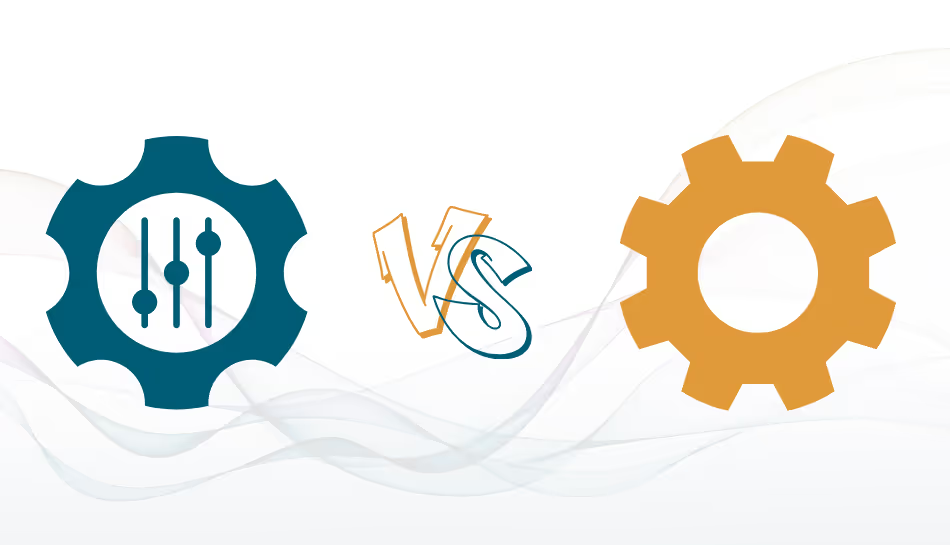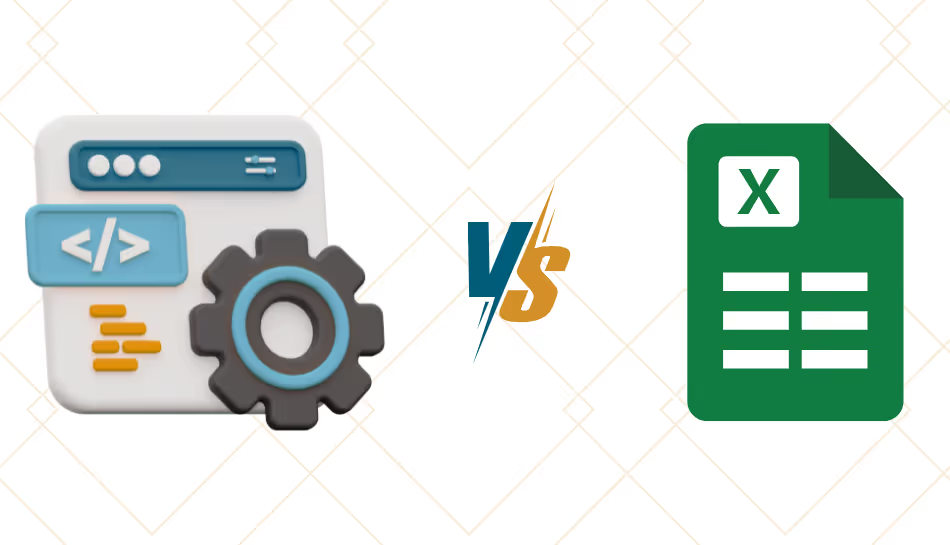Selecting the appropriate ERP software has the potential to mold how effectively your business operates. One of the largest decisions companies make is whether to go with a custom-made ERP application or an off-the-shelf ERP system. Both have obvious benefits, but the best option is determined by the size, organization, and objectives of your company.
In this article, we’ll explore the difference between custom and ready-made ERP, the pros and cons of each, and how to decide what fits your business best.
Understanding the Basics
1. What Is an Off-the-Shelf ERP?
An off-the-shelf ERP, or ready-made ERP, is ready-made software that provides general solutions for most companies. It typically contains standard modules such as finance, human resources, inventory, and customer management. SAP, Oracle, and Microsoft Dynamics are well-known examples.
Since these systems already have their settings preconfigured, they are easy to deploy quickly and cost less money upfront, which suits companies that need to be up and running quickly without having to construct a system from scratch.
2. What Is a Custom ERP?
A custom ERP software is built directly for your business needs. It's adjusted to your processes, integrates well with current tools, and scales up as your business expands. This customized ERP solution provides full control over design, functionality, and scalability.
It might cost more time and capital to develop, but it provides unparalleled flexibility for companies with uncommon operations or intricate processes.
Difference Between Custom and Ready-Made ERP
The variation between custom and off-the-shelf ERP is mostly flexibility, price, and installation.
- Custom ERP solutions are crafted from scratch to fit your business strategy. Each and every feature, dashboard, and integration is created to respond to your workflow. This implies it perfectly matches your operations but is time-consuming to develop and may be pricey upfront.
- Whereas an off-the-shelf ERP is an out-of-the-box product. It is offered with pre-configured modules that are applicable to the majority of sectors. You can have slight modifications, but extensive alteration may not be feasible. The installation process is quicker, and the initial cost is lower, but it may not completely cater to special business requirements.
Pros and Cons of Custom ERP Software
- Advantages:
A tailored ERP allows you total autonomy to create a system that functions precisely the way your company does. It gets rid of features that are not needed, automatize major processes, and also harmonizes perfectly with existing tools. Because the system is all yours, no periodic licensing charges are required. Custom ERPs also grow with your company, you can install new modules and features as your company expands.
- Disadvantages:
The largest disadvantage is increased upfront cost. Creating a tailored ERP takes time, experienced developers, and regular maintenance. Small companies will struggle to handle such an investment short-term. It also takes more time to create, test, and implement than a standard ERP.
Pros and Cons of Off-the-Shelf ERP
- Advantages:
An off-the-shelf ERP is easy to implement and simple to maintain. It's already vetted and widely used across various industries, so it's stable and reliable. The vendor offers updates, technical support, and training. For small to medium-sized companies, it's an inexpensive method to go digital fast.
- Disadvantages:
Nevertheless, out-of-the-box ERPs are not highly customizable. Your company might have to tailor its workflows to fit the software's framework. Licensing fees and user fees can add up over time. Integration with specialized systems can be difficult as well, particularly if you are utilizing niche tools.
Customizable ERP vs Standard ERP: Which Do You Need?
When weighing a customizable ERP against a standard ERP, it ultimately depends on the particularity of your company's needs.
If your business has distinct processes, handles numerous product lines, or necessitates close control over data, a customized ERP is the preferable option. It fixes around your needs and not vice versa.
However, if your priority is speedy implementation with critical features, an off-the-shelf ERP is more convenient. It's ideal for companies that value simplicity and lower initial costs.
Final Thoughts
The off-the-shelf ERP vs custom ERP debate is a function of how you weigh flexibility, time, and cost. A custom ERP provides you with ownership, scalability, and competitive advantage specific to your objectives. An off-the-shelf ERP provides speed, cost-effectiveness, and convenience for near-term needs.
Ultimately, both solutions can transform your business operations. The best choice is the one that aligns with your long-term vision, whether that means investing in a fully tailored system or adopting a reliable ready-made ERP that supports your growth from day one.



